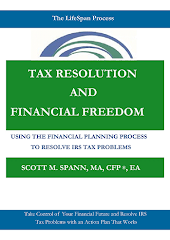Are procrastinating behaviors holding you back as you attempt to deal with tax and financial matters? You have probably heard the saying, “Why do today what you can put off tomorrow?”. It seems that a significant number of people with tax or financial problems experience a tendency to put off or get overwhelmed by their financial obligations.
Procrastination is defined as putting off things that you should be doing now. Most people procrastinate at some point in their lifetimes. Approximately 20% of people in this country are classified as “chronic procrastinators”. Typical distractions that delay tax and financial planning include family commitments, work, email, cell phones, internet, iPods, and 400 plus channels of digital television with video on demand. Not surprisingly, procrastination is a common characteristic of many tax and financial planning clients.
“To do” lists provide good reminders of what needs to be done. However, a “to do” list is also a good way to delay things actually getting done in a timely manner. Have you ever had good intentions in the past in relation to financial planning tasks? Some common tax and financial intentions are listed in the statements below:
• “I need to file my taxes on time this year.”
• “I really need to set up a savings fund just in case an emergency occurs.”
• “We should pay off our credit cards.”
• “Let’s get our paperwork to our accountant.”
• “I need to get my financial planning forms to my planner.”
Unfortunately, the good intentions listed above lack direction. A better alternative as you follow the steps of the tax resolution process is to develop what I refer to as “implementation intentions” or “planning intentions”. In the tax resolution world, planning intentions decide how, when, and where you are going to accomplish the steps of the tax and financial process. They increase the likelihood you will follow through on the important steps needed to improve your financial well-being.
If you are undergoing the tax resolution process to deal with tax debt you should be sure to define the specifics (how, when, where, etc.) of your planning behaviors. Put your planning actions in writing and hold yourself accountable. Never miss a deadline.
For more information on the LifeSpan Process of Tax Resolution call Scott Spann toll-free at 877-TAX-9110.
Thursday, April 23, 2009
Fighting Procrastination
Labels: tax resolution, financial plan, tax debt
financial plan,
procrastination,
tax problems,
tax resolution
Subscribe to:
Post Comments (Atom)





No comments:
Post a Comment